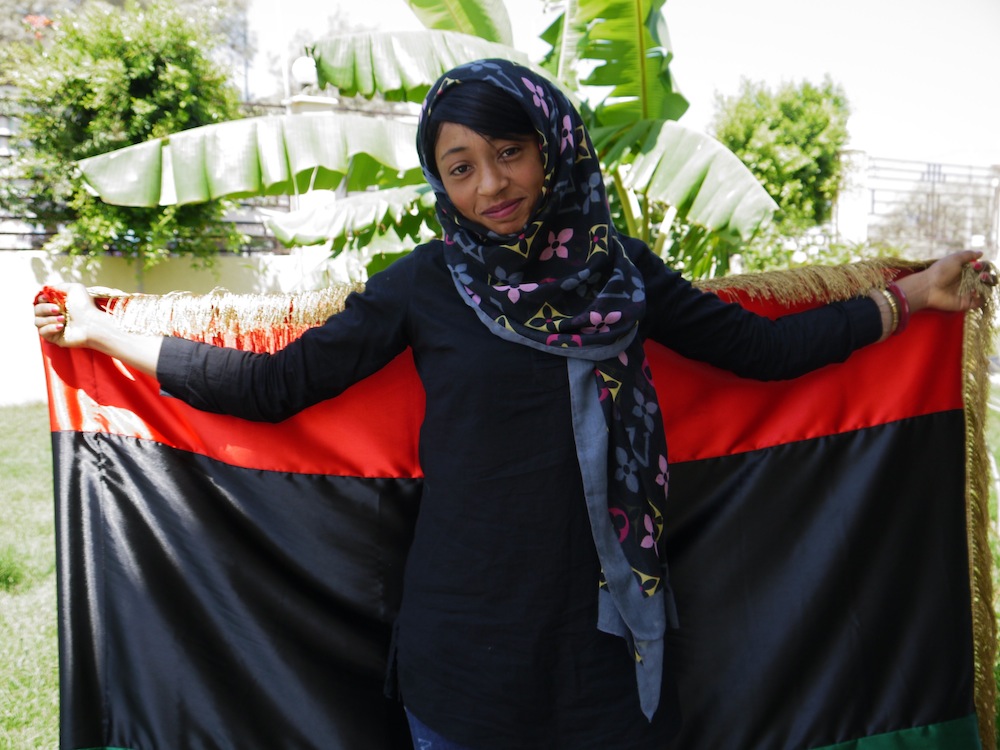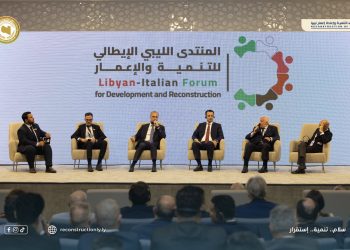By Karim Mezran and Dunkan Pickard
After the successful elections of 7 July, Libya must now concentrate on resolving problems that could . . .[restrict]derail the transition to democracy. There are many — the lack of security, rising crime, the fragmentation of power and failing infrastructure. But for at least the next several months, attention will turn to preliminary questions regarding the working of Libya’s first fully democratically-elected institution, the General National Congress (GNC), which is the first brick upon which the new state will be built.
Much confusion surrounds the powers and the functioning of the GNC. As Libya’s first post-Qaddafi national institution with electoral legitimacy, it is sovereign to govern the country in any way it sees fit with largely unchecked power. Any confusion about how such an institution will function could open the door to the reemergence of authoritarianism. Some keys points must be clarified to safeguard Libya’s fragile democracy.
First, the GNC should follow the example of the Tunisian National Constituent Assembly and pass a “mini constitution” outlining the provisional distribution of power. The mini constitution has lent procedural legitimacy to Tunisia’s government and Assembly in the transitional period, and it has helped Tunisia avoid institutional crises in the absence of a basic law. This aspect is all the more important in Libya where no procedural rule for the functioning of either the new GNC or the government has been elaborated, and where the potential for conflict, due to the excessive fragmentation of the political apparatus, remains high.
Another point requiring to be discussed is whether the speaker of the GNC will also serve as head of the Libyan state, as envisioned by the constitutional declaration issued by the National Transitional Council (NTC) in the summer of 2011.
The GNC would be wise to distance itself from the policies of the NTC, which at times has come under attack because of its centralisation of powers and opaque decision-making process. Conflating the two functions would make the new assembly look precisely like its predecessor. The GNC should consider separating the offices. The GNC speaker would be busy managing only the daily affairs of the congress, while the head of state would oversee foreign affairs, judicial reform, the armed forces, and other key policy areas. The head of state would ideally serve as a unifying figure, above any partisan debates into which the GNC president might be embroiled.
A third important point is that the National Congress should re-appropriate to itself the responsibility of appointing the constitutional commission to draft the new constitution.
This responsibility was removed on legally questionable grounds by the NTC a few days before polls opened in Libya.
Having a separate commission, whether elected or appointed, become the focus of all the constitutional issues will allow the GNC to focus on legislative priorities, such as the budget, the appointment of the government, reconciliation, and reconstruction.
The dangers of consolidating legislative and constitutional authority are seen in Tunisia, where the debate over the budget distracted the National Constituent Assembly from its constitutional obligations for several months. Moreover, the Tunisian system of having different drafting committees work on the various aspects of the constitutional process is clearly inefficient and should not be adopted in the Libyan case. The Tunisian committees were assigned tasks of varying levels of importance, but they all work simultaneously, not allowing for coordination between committee members on key constitutional questions.
The best example of this is the committee looking at the system of government — choosing a presidential, parliamentary, or semi-presidential system. The committee has still not decided what system it will choose and the decision will be left for review by a plenary session. Meanwhile, the other committees are drafting proposals related to rights and freedoms, the judicial system, and the nature of decentralisation — all of which depend on the system of government chosen.
If the committee or plenary session makes a decision that is inconsistent with decisions made in other committees, the final document will be incoherent and edits will be made at a very late stage. It would have been better for the plenary session to decide basic principles to guide the committees’ work in advance of their first meetings, such as the system of government.
In the case of Libya, the body ultimately in charge of reviewing and endorsing the constitution — the GNC — is to be distinct from the body that drafts it. Under the plan, the constitutional commission will present a draft to the GNC. If the latter approves it, it then goes to a national referendum for authorisation. This process will be more efficient than the Tunisian model and ensures inclusiveness by requiring participation from experts, elected representatives and the Libyan people.
However, there is also the issue that the constitutional commission, according to the last decree of the NTC, should comprise sixty members chosen in equal numbers from each one of the three regions into which historical Libya was divided: Fezzan, Cyrenaica, and Tripolitania. This represents another negative development.
Considering that the national identity of the Libyans has been frustrated since practically its inception, the opposite project should be pursued — one that fosters unity and cohesion among the population rather than one emphasising regional and local divisions. The commission should be composed of constitutionalists, experts in transition mechanisms, political scientists and economists — in other words, experts in constitution-making and institution-building who can provide the necessary technical expertise and avoid falling into legal loopholes.
These are just some of the issues that stand in the way of a successful process for drafting the constitution and reconstructing the country – and possible solutions.
It is important that they are discussed and resolved as soon as possible to avoid unnecessary and potentially disruptive conflicts.
Karim Mezran is a Senior Fellow and Dunkan Pickard is a non resident Fellow with the Rafik Hariri Center for the Middle East at the Atlantic Council of the United States. [/restrict]




